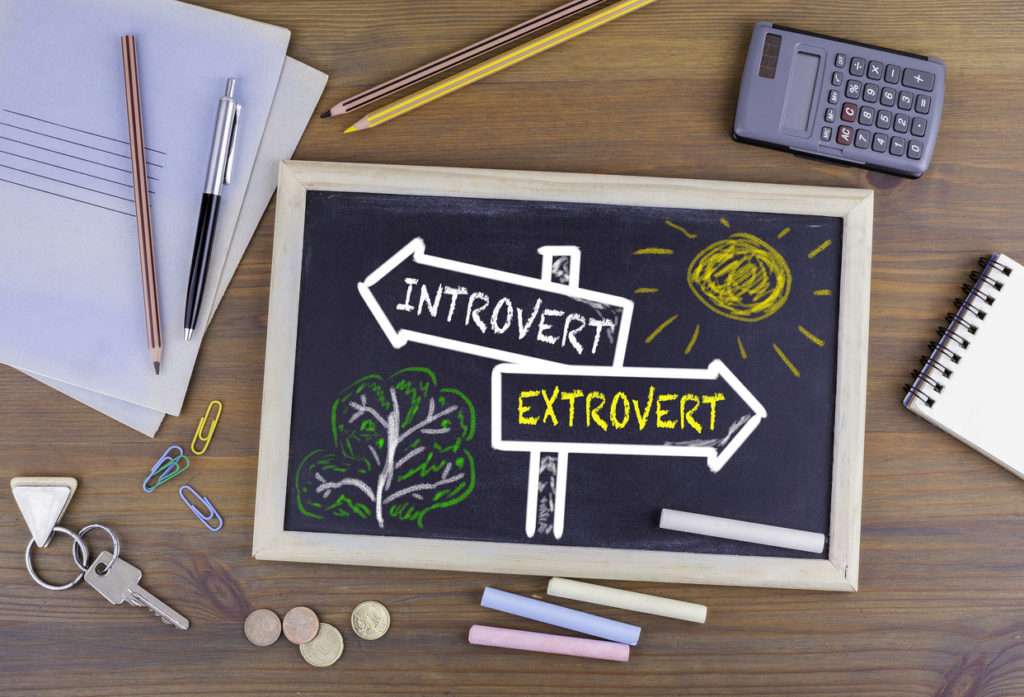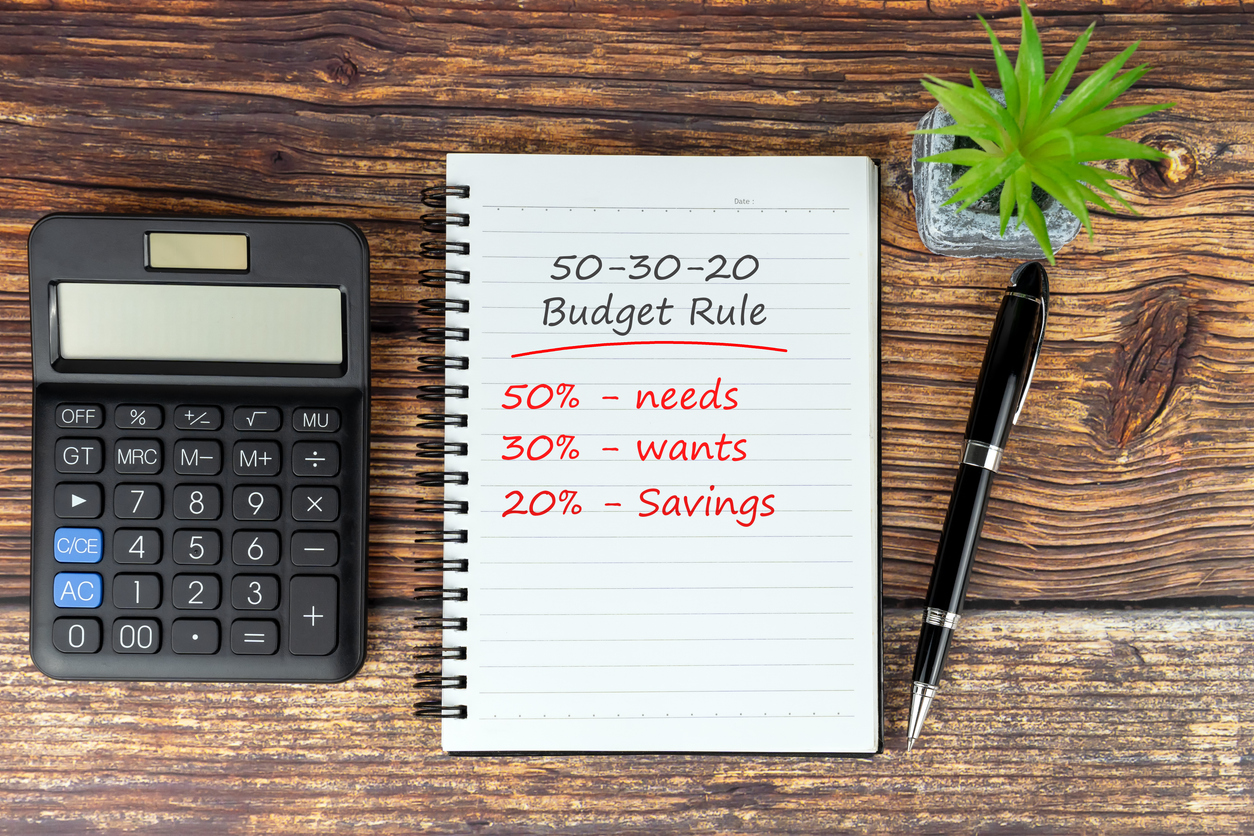If you were to do a quick google search on personality types, you’ll quickly come across three names; Carl Jung and Myers-Briggs. Carl Jung was a psychologist and psychoanalyst in the early 1900s who rubbed shoulders with the likes of Freud and is referred to as one of the early founders of psychoanalysis.
One of his theories suggested a person’s psyche was made up of 4 core archetypes that were passed down by our ancestors; the self, the shadow, the persona and the animal/animus. Although Jung remains an integral part of the history of psychology and psychiatry, his theories are less favoured in modern-day psychology ideas and interventions.
Introvert Or Extrovert? Is Your Personality Type Suited To Living Alone?
Living Alone | 15th June 2021 by Simone Garland
Despite the millions (and I mean millions) of people who live alone, solo living is still seen as going against the grain. Outside of the misleading stereotypes of why people live on their own, is there something to be said about the idea that being a one-man/woman band lends itself more to certain personality types?

Types of Personalities
If you were to do a quick google search on personality types, you’ll quickly come across three names; Carl Jung and Myers-Briggs. Carl Jung was a psychologist and psychoanalyst in the early 1900s who rubbed shoulders with the likes of Freud and is referred to as one of the early founders of psychoanalysis.
One of his theories suggested a person’s psyche was made up of 4 core archetypes that were passed down by our ancestors; the self, the shadow, the persona and the animal/animus. Although Jung remains an integral part of the history of psychology and psychiatry, his theories are less favoured in modern-day psychology ideas and interventions.
Myers and Briggs were a mother and daughter duo whose work with Jung inspired them to go on and develop a tool that could identify the different aspects of a person’s personality. First developed in the 1940s The Myer Briggs Type Indicator (MBTI) has since become a very popular questionnaire to highlight different aspects of personality. Unfortunately, it’s not overly reliable with many studies suggesting if you were to take the test a second time, you’d get a different result.
If anything, personality types appear to be quite difficult to put in a box, at least one that you’ll continue to fit into throughout your life anyway. So although we will take a look at what personality types might feel most comfortable living alone, this might not align with how you see yourself. Which is fine, we’re all snowflakes unique and brilliant in our own ways.
After a small battle trying to source the best personality theory to inform this quest, I settled on The Big Five Personality Traits Model which is widely used by psychologists today. It also allows for some movement between how much of a personality type you are.
Myers and Briggs were a mother and daughter duo whose work with Jung inspired them to go on and develop a tool that could identify the different aspects of a person’s personality. First developed in the 1940s The Myer Briggs Type Indicator (MBTI) has since become a very popular questionnaire to highlight different aspects of personality. Unfortunately, it’s not overly reliable with many studies suggesting if you were to take the test a second time, you’d get a different result.
If anything, personality types appear to be quite difficult to put in a box, at least one that you’ll continue to fit into throughout your life anyway. So although we will take a look at what personality types might feel most comfortable living alone, this might not align with how you see yourself. Which is fine, we’re all snowflakes unique and brilliant in our own ways.
After a small battle trying to source the best personality theory to inform this quest, I settled on The Big Five Personality Traits Model which is widely used by psychologists today. It also allows for some movement between how much of a personality type you are.
The Big Five
The Big Five Personality Traits Model states that there are 5 core personality traits that everyone has, each trait is a spectrum and a person can fall anywhere between the two extremes of that trait.
| 5 Personality Traits | |
| Conscientiousness Spectrum: Spontaneous to Conscientious | From one end being described as spontaneous, disliking of structure and often procrastinating important tasks rather than actually doing them. To the other end of the spectrum where the fully organised, diligent and deadline hitter find themselves. |
| Agreeableness SPECTRUM: Hostile – Agreeable | This spectrum swings from those most agreeableness feeling a high level of empathy for others and going out of their way to help to the other extreme of not caring or taking interest in others and in some cases being manipulative. |
| Neuroticism SPECTRUM: Neurotic – Stable | Characterised by things like moodiness and emotional stability, those with high levels of neuroticism may experience acute anxiety, mood swings and not be very emotionally resilient. On the other hand, personalities lower on the spectrum might be described as relaxed, rarely worrying or getting stressed about things. |
| Openness to experience SPECTRUM: Open – Closed | Openness is seen through creativity, having lots of interests and being open to trying new things for those high on the spectrum. Whereas, those lower down on the openness scale might be adverse to change, trying new things or be less creative. |
| Extroversion SPECTRUM: Extroverted – Introverted | Probably one of the most recognised personality traits. Characterised by those with high levels enjoying being the centre of attention, thriving in environments where they can buzz off others. Introverts, on the other hand, find themselves on the other end of the scale enjoying solitude and avoiding the limelight in social situations. |
Is there a certain personality most likely suited to living alone?
For most of the Big 5 personality traits, there could be an argument that either extreme would fit nicely with the personality of a solo liver. Conscientiousness, for example, could easily compliment someone who lives alone on both ends of the personality scale. Those who are organised and enjoy having a tight schedule will suit not having the liability of another person encroaching on their plans. Alternatively, those who like to fly with the wind and see what happens will benefit from not having a housemate or partner to set expectations on how they should live their life in their own home.
Likewise, people on either end of the neuroticism spectrum could both suit solo life. Having complete control over your home, how you live and the routines you follow can help reduce acute anxiety in those with panic disorders (also good to note that this might not always be the case). In comparison people on the opposite end of neuroticism, who rarely become stressed or anxious about the unknown or what if’s, can equally find comfort living alone in their own space with their own company to do as they please when they please.
Out of the five, I would argue that agreeableness is a personality trait that has the least impact on whether a person would find more comfort than others in living on their own.
Of all the personality traits, the spectrum of extroversion to introversion is likely to be the most attributed to the personalities of people who live on their own, with the assumption that solos are mostly introverts. However, if we’ve learnt anything so far it’s that people from all walks of life, types of personalities and backgrounds end up enjoying life on their own terms and by living alone.
People who naturally find themselves on the more extroverted side of life might find that living alone allows them time to recharge and not feel that they’re in competition with someone in their own space. Naturally, solo life does seem to lend itself well to people who find comfort on the introverted side of the spectrum. Being an introvert, much like the reasons why people live alone, are exaggerated through other people’s opinions and lack of understanding.
It is often misunderstood as being shy, nervous in social situations or even lacking confidence. This isn’t necessarily the case, as discussed by Susan Cain in her TED talk ‘The Power of Introverts’. Cains explains that being introverted or extroverted is based on how you respond to stimulation rather than how confident you are. Those who tip into introversion find that they don’t need so much stimulation unlike their extroverted counterparts, which means they often prefer and find happiness in activities they can do on their own.
Even if as a community we might have a higher percentage of introverted personalities, it doesn’t mean we just want to close the door to the world. It just means we don’t need the same interactions or engagements as others to feel content or comfortable. Some of the most well-known names are self-described introverts; Dr Seus, Albert Einstein and Elenor Roosevelt among them.
Conclusion
Spending time alone and being comfortable in our own company comes from ‘finding contentment and happiness from activities that can be carried out in solitude’. There certainly are personalities that can be said to lend themselves to living alone better than others. Having said that, essentially it seems open to interpretation if there is a ‘most likely’ personality type more suited to living alone. There are many different dynamics and spectrums that make up our unique personalities, these also influence how well we adjust and come to terms with living alone.
Share this post:
Hear from Solo Living now and then by signing up to our mailing list


















